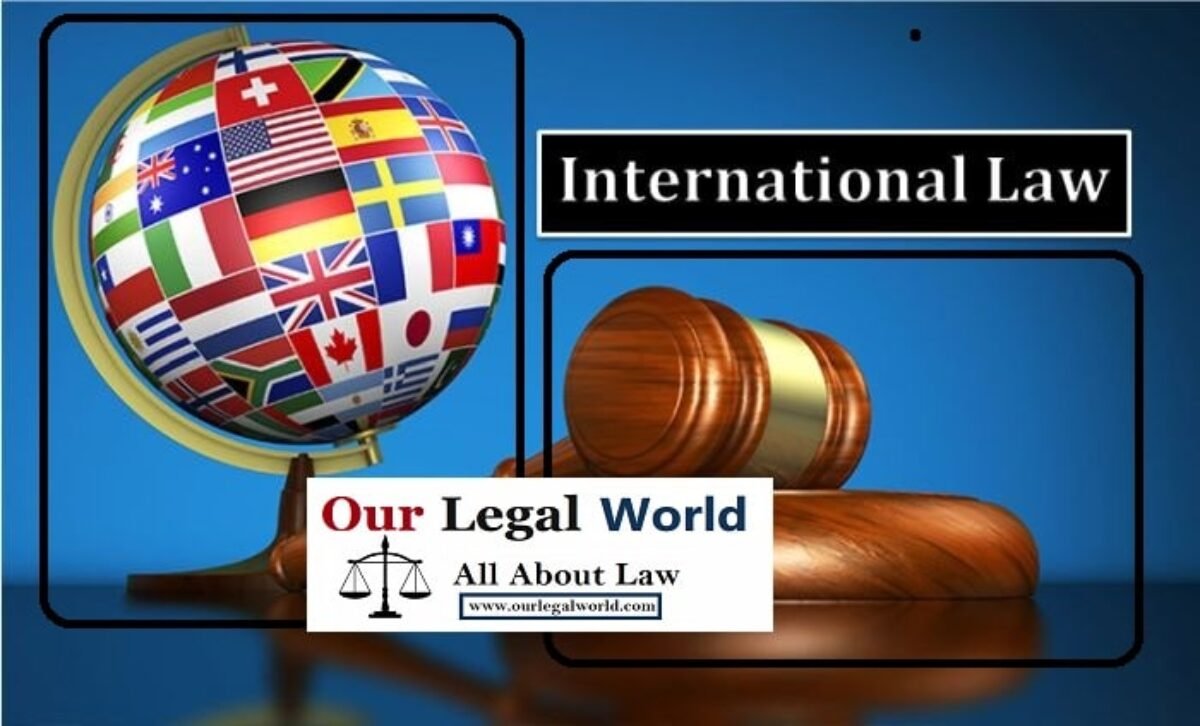DEFINITION OF INTERNATIONAL LAW with explanation
INTRODUCTION:
International engagement increased to fill the gap in today’s world therefore, many confusions and conflicts also expanded. International Law provides a method where interstate relations can be conducted. The method is that Countries come organized to make binding rules that they believe will benefit their citizens. International Law grew out of requisite and its key purpose is to encourage justice, peace, and common interest.
The term international law was first created by the English philosopher Jeremy Bentham. He defined it as “a collection of rules governing relations between states” this definition does not include the two important elements, which shows how much international law has evolved today. They are individuals and international organizations.
In today’s world, international law can be defined as treaties or agreements or conventions between the countries to have a smooth relationship between the nations to carry business and to interact with each other.
It is up to the countries to enforce the treaties as the laws, but there are some international organizations like the United Nations to enforce certain treaties as laws to promote international peace and security. Regarding this, there are also two concepts called consent-based governance and not consent-based governance.
- Consent-based governance: A state is not beholden to put up with the law unless it has given its consent to the specific plan of action.
- Not consent-based governance: There is also not consent-based governance in international law in which the country does not give consent but that still must be followed by the nations.
This is the reason there are both things in international law: the principle of territorial integrity and the right to self-determination.
DEFINITIONS OF INTERNATIONAL LAW:
“The body of law that governs the legal relations between or among states or nations.” [1]
“A body of rules that control or affect the rights of nations in their relations with each other.” [2]
Many jurists have defined international laws in many ways.
- By Oppenheim: “Law of Nations or international law is the name for the body of customary law and conventional rules which are considered binding by civilized states in their intercourse with each other.”
- By Alf Ross: If Rose defines the term international law as under: “International law is the body of legal rules binding upon states in their relations with one another.”
- By Lawrence: According to him, “international law is the rules which determine the conduct of the general body of the civilized state in their mutual dealings.”
- By J.L. Brierly: The Law of Nations or International Law may be defined as the body of rules and principles of action, which are binding upon civilized states in their relations with one another.
- By Torsten Gihl: The term International Law means the body of rules of law, which apply within the International Community or society of Sates.
- By Gray: International law or the Law of Nations is the name of a body of rules which according to their usual definitions regulate the conduct of states in their intercourse with each other.
- By John Austin, a leading English writer on Jurisprudence: Described International Law as the one consisting of positive International morality and opinions or sentiments which are followed by the nations as per their wish.
International law has every time been in an unremitting state of change, therefore,
- Modern definition: “That body of legal rules which regulates the relationship of the Nation-States with each other, as well as, their relationship with other international actors.”
Lord Coleridge, C.J. says in the case, Queen v. Keyn [3] that international law is “the law of nations is that collection of usages which civilized States have agreed to observe in their dealings with one another.”
Thus, it is considered as the set of rules, legal norms, treaties, agreements between countries to bind them mutually. So that the laws might help the nations to interact with each other and to have a smooth trading process between the countries. The definitions might help in deriving the principles and the kinds of international law.
PRINCIPLES OF INTERNATIONAL LAW:
International law is based on two principles they are:
- Jus Gentium: The established rules govern the relationship between two nations mutually
- Jus Inter Gentes: It refers to the treaties and agreements that both countries agree mutually.
MAJOR KINDS OF INTERNATIONAL LAW:
International law falls into two major categories
- Private international law
- Public international law
Private international law
“That branch of International law which determines which law is to be applied to a specific case containing a foreign element is called Private International law.”
When there is a conflict between the two countries, the difficulty arises to the district court which country’s law shall be used to solve the situation. In these scenarios, private international law helps to determine which law shall be applicable.
Examples: Family law matters, recognition of judgment, torts, contracts, etc.
Public international law
“A body of legal rules which regulates the relation of states inter se as well as their relations with other non-state entities is said to be Public International law.”
Public international law legalizes the bond of the international actors with each other i.e., it also regulates the relationships with other non-state entities.
Examples of international actors: States, individuals, NGO’s, IGO’s, Multi-National Corporations, and Movements.
The laws of the sea, economic law, diplomatic law, environmental law, human rights law, and humanitarian law are some of the public international laws.
CONCLUSION:
Therefore an overview of the definitions of international law is that it consists of rules, regulations, principles to regulate the relations between the states and individuals and relations between international organizations. There are numerous definitions for international law i.e. it can be addressed in many different ways, so if there is any problem regarding the international law the solution may be determined by upon the definition of law, which one may choose to accept.
REFERENCES:
[1] https://legal-dictionary.thefreedictionary.com/international+law.
[2] https://www.merriam-webster.com/dictionary/international%20law.
[3] Queen v. Keyn Ex. D. 63, 153, 154 (1876).
[4] Legal Bites, Definition of International Law, https://www.legalbites.in/definition-international-law/.
[5] Nature and Definition of International Law, https://blog.ipleaders.in/nature-definition-international/.
[6] Nature, Scope, and Subjects: A Bird’s Eye View, http://www.legalservicesindia.com/article/1249/International-Law:-Bird.html.
Also Read: SOURCES OF INTERNATIONAL LAW




![Call for Campus Ambassadors by Our Legal World [2 Months; Virtual]: Apply by June 15](https://www.ourlegalworld.com/wp-content/uploads/2024/06/Logo-New-136x150.png)


